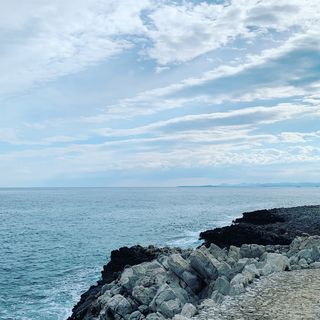Spirituality
Chronic Illness and Spirituality
The effect of illness on spiritual identity.
Posted July 15, 2019

Those of us who live with an illness often struggle to be seen (and even to see ourselves) as more than our disease. We are not only our bodies; we also are people with feelings, histories, families, interests, dreams, and plans. We are physical selves, emotional selves, mental selves, and social selves. We also are spiritual selves, which is the topic of this month’s blog post.
Spirituality is defined as “a dimension of being that gives life meaning through a personal quest for understanding the ultimate questions about life, and about relationships with the sacred or transcendent (Roger & Hatala, 2017).”
These “ultimate questions” include queries about the meaning and purpose of our lives, our place in the universe, and the existence of a higher power.
We address these spiritual questions in a variety of ways. Some practice religion and maintain a relationship with a higher power that reveals itself through religious texts. Others find the transcendent in nature, in art, and in meditation. Still others locate the sacred in their relationships with family and friends.
Our journeys as spiritual people take many turns over the life course, as our search for meaning is ongoing and ever-changing. We know that illness disrupts identity, but we don’t often talk about the specific ways that illness affects spiritual identity (Drutchas & Anandarajah, 2014).
Does My Pain Have Meaning?
Elaine Scarry writes that pain “destroys a person’s self and world” (Scarry, 1985). We do not retain our fundamental identity while we are experiencing pain; rather, we are undone as we become strangers to ourselves. This experience of rupture of self is profound. What we were sure of becomes unreachable, and we wonder if what we thought we knew was ever true.
The existential crisis created by the illness experience—the “dark night of the soul”—hits us spiritually. If we once felt cared for by God, we may feel abandoned. If nature used to give us solace, we may now feel unmoved by it. If our relationships made us feel connected to something larger than ourselves, we may feel isolated from the very people who once meant so much.
There’s a pattern here that’s worth noting: Where once we felt connected (to God, to nature, to important others), we now feel utterly alone.
We don’t have a magic bullet to heal the aloneness of spiritual crisis. But we do have the ability to try to understand the crisis and thereby deepen our knowledge of self.
Giving Voice to Spiritual Crisis
There is something so overwhelming about the spiritual crisis that words fall short. To say, “I feel despondent, isolated, sorrowful, heavy” does not adequately capture the pain of the experience. Often, desperate to escape these feelings, we attempt to move away from them through distraction or numbing.
What if we instead acknowledge that we need to move through rather than around spiritual crisis? What if, accepting that we are in a place we would rather not be, we look around and try to understand the terrain?
“I’m in a world of ice. It’s dark and cold and eerily silent.”
“I’m in a forest, and I keep getting tripped by roots that jut out of the ground. Branches scrape my eyes and I can’t see.”
“Everything is bombed out. There’s rubble and destruction everywhere, and I’m just sifting through it.”
“Quicksand. I place my foot, and I sink. Nowhere is safe to stand.”
“I’m in space, and I’m drifting away from everything I once knew.”
The inner landscape of spiritual crisis is powerful and individual. Can you close your eyes and picture it? Where do you locate yourself? What does it look like, sound like, smell like? How do you feel as you exist in this landscape?
As you orient yourself to where you are, you eventually will want to remember and articulate where you used to be before everything changed. What gave you pleasure, meaning, a feeling that things made sense?
There are many models of spirituality, and we move among them. Did you derive meaning from altruism, from belief in a Divine Power, from the community, from belief in the self, from nature or art (Unantenne et al., 2011)? Are any of these spirituality models present in your current landscape?
If not, where would you have to travel to find them? Are there spiritual models that are new to you in your landscape? What are they?
Spiritual Beliefs Can Help and Hurt
As you sort through the spiritual beliefs you’ve held throughout your life, ask yourself how they are serving you. While most spiritual beliefs have been shown to aid adjustment to illness, some have been shown to produce negative effects (Roger & Hatala, 2017).
Consciously or unconsciously, for example, some may harbor a belief that their illness is a punishment from God. This painful belief needs to be examined and worked through.
Finding Meaning in Self-Understanding
I’ve invited you to ask a lot of questions, to pay attention to your internal terrain and start mapping the rise and fall of your soul, the places where there might be comfort, and the locations that feel particularly treacherous. This is hard but important work, and the answers you find will be yours alone.
You can grab a pen and paper and start reflecting on some of the questions I posed above; you can sit down with a friend over coffee and share your experiences together; and/or you can see a therapist or spiritual leader who will work with you as you deepen your self-understanding.
Victor Frankl wrote that “suffering ceases to be suffering in some way at the moment it finds a meaning (Frankl, 1984)." In taking stock of our spiritual selves, we seek to find meaning. In finding meaning, we seek to transform our pain.
Has illness created a spiritual crisis for you? How have you experienced it, and what would you advise others?
References
Drutchas, A. & Anandarajah, G. (2017). Spirituality and coping with chronic disease in pediatrics. Rhode Island Medical Journal, March 2014, 26-30.
Frankl, V. E. (1984). Man's search for meaning: An introduction to logotherapy. New York: Simon & Schuster.
Roger, K.S. & Hatala, A. (2017) Religion, spirituality & chronic illness: A scoping review and implications for health care practitioners, Journal of Religion & Spirituality in Social Work: Social Thought, 37:1, 24-44.
Scarry, E. (1985). The body in pain: The making and unmaking of the world. New York: Oxford University Press.
Unantenne, N., Warren, N., Canaway, R., & Manderson, L. (2011). The strength to cope: Spirituality and faith in chronic disease. Journal of Religious Health, 52, 1147-1161.




